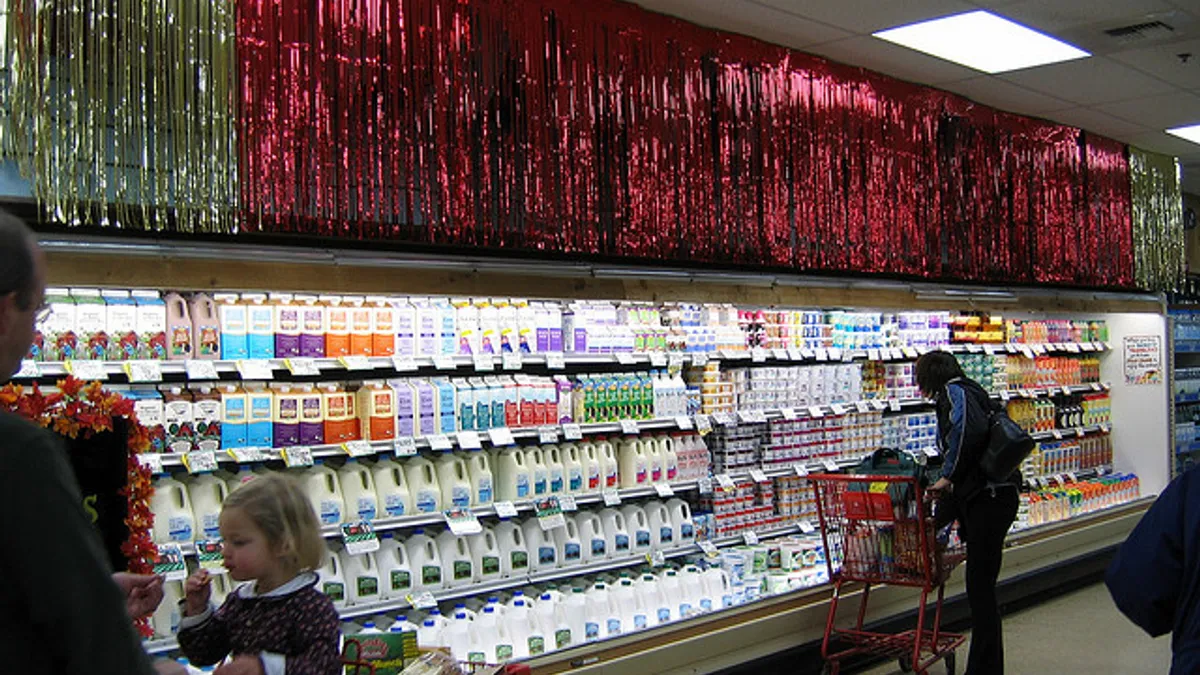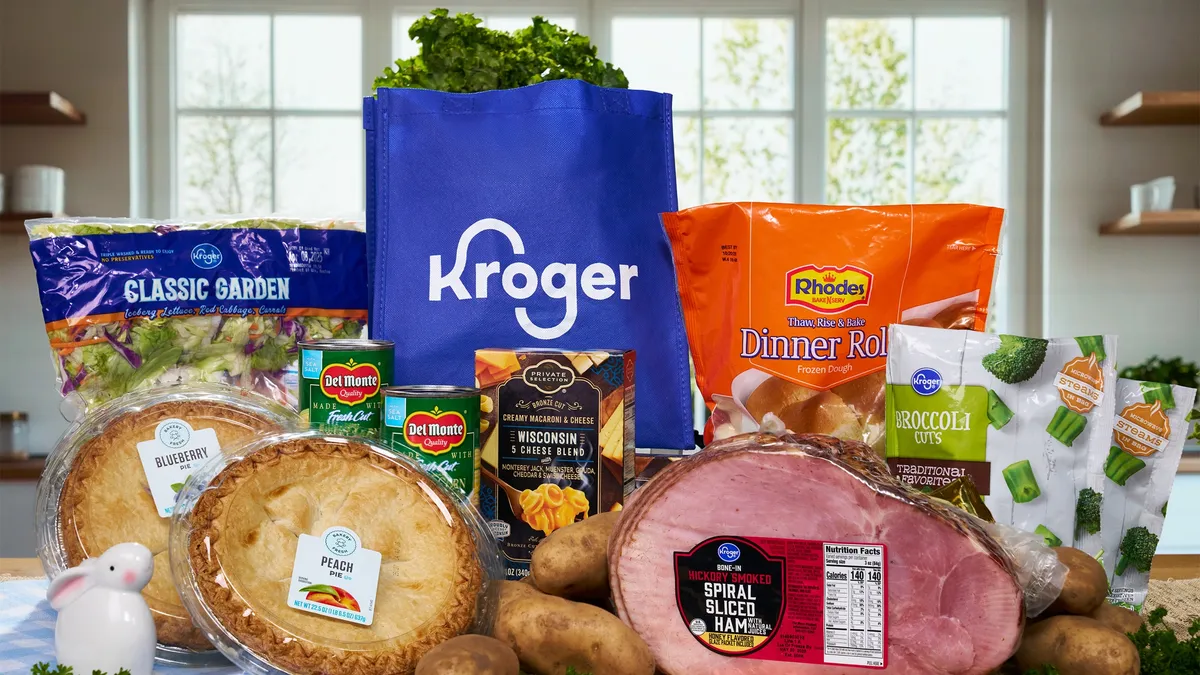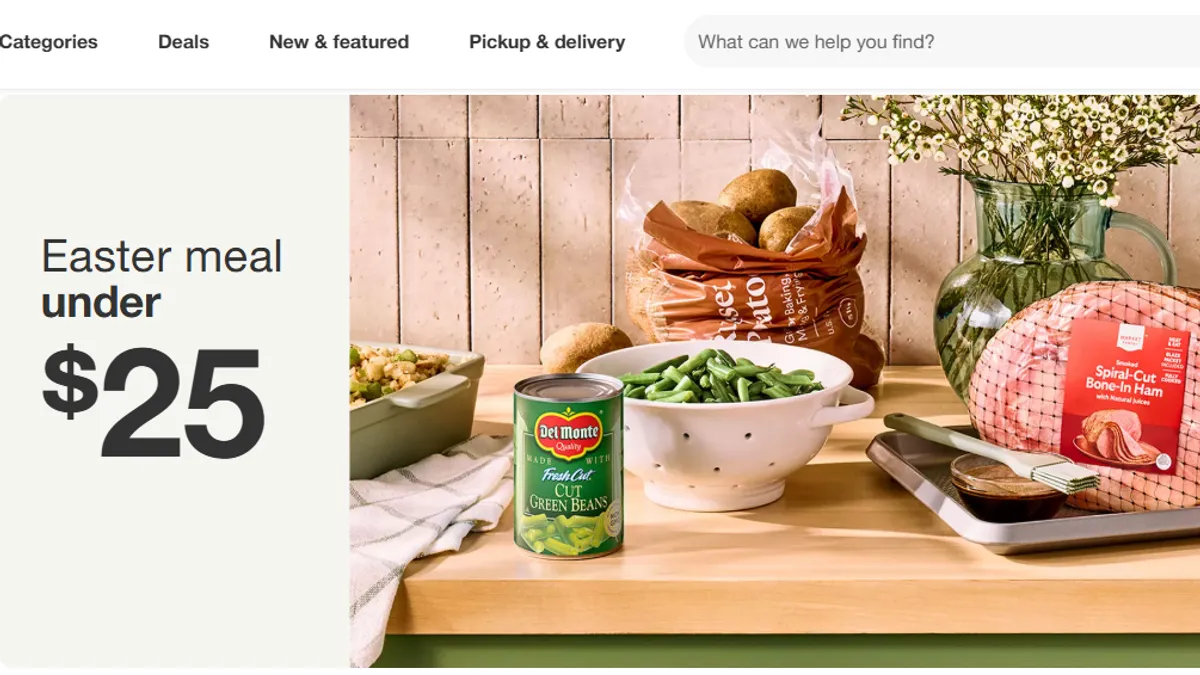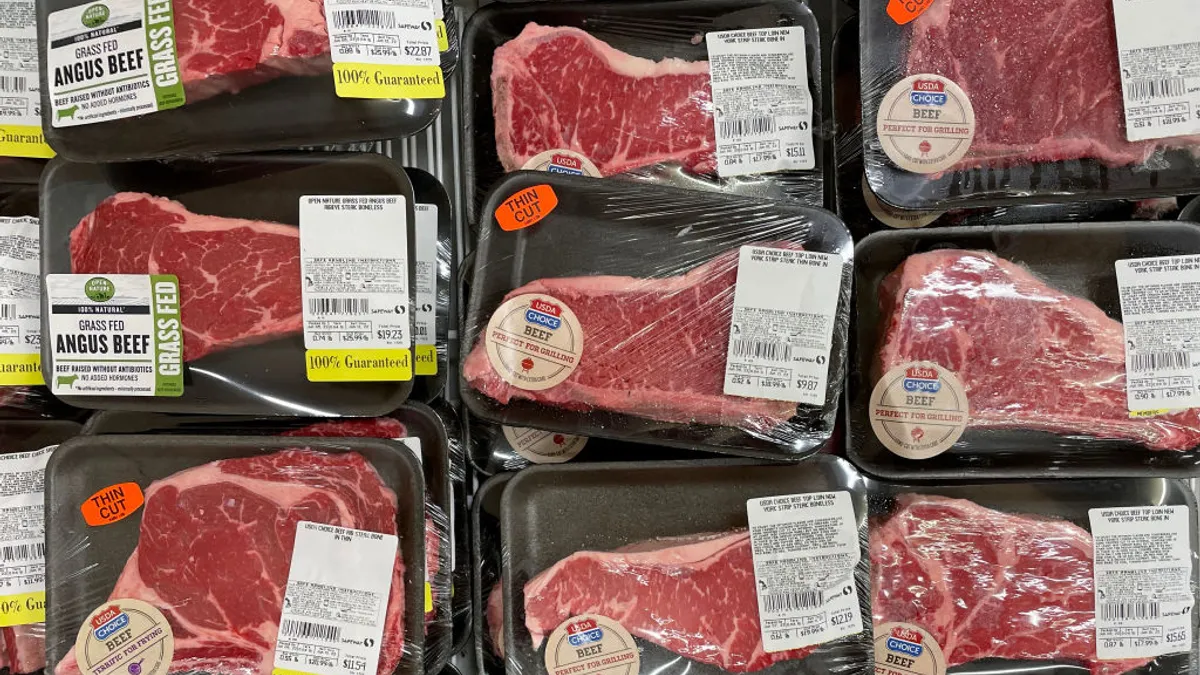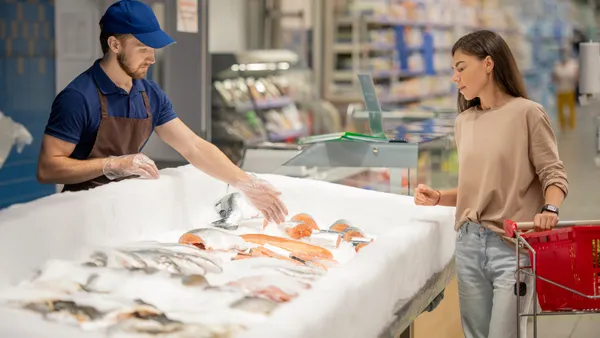Once seen as just a value option by shoppers, private label offerings have evolved with the growth of new generational shoppers, quality control and premium products, according to research by consulting firm Magid.
“That’s why you see players like Publix and Trader Joe’s and Costco’s Kirkland continue to push their private label brand as not just a substitute of a national brand but as a leader in a lot of ways,” Matt Sargent, senior vice president of retail at the firm, told Food Dive.
But as Magid's latest report shows, not all store brands are equal in the eyes of consumers. And while most retailers have seen the sales benefit of increasing their private label offerings, some stand to benefit more than others in the months and years ahead.
In a survey of 3,000 U.S. adults conducted in May, the firm found that Trader Joe's led all retailers in store brand interest, with 56% of respondents saying they would be open to purchasing private label products from the grocer. Meijer and Aldi tied for second place with 55% expressing interest while Kroger, Publix and Costco all placed third at 53%.
Among mass merchandisers, 51% of Walmart and Sam's Club consumers saying they would consider buying private labels, while 46% of respondents expressed interest in Target's store brand grocery products.
Amazon ranked last in the grocery category, with 37% of consumers open to trying their private label grocery products, which include Amazon Elements, Presto, Whole Foods 365, Wickedly Prime, Mama Bear, and Happy Belly.
Consumers showed a greater preference for specific store brands. Still, some lines came out well ahead of others. Costco's Kirkland brand scored highest in Magid's survey, with 94% awareness and 74% of shoppers saying they would consider the line. Target’s Market Pantry brand, on the other hand, saw 79% awareness, but only 59% of people would consider buying it.
Walmart's brands, meanwhile, were a mixed bag. The retailer's Sam’s Club brand had 90% awareness but only 54% were likely to consider, while its Great Value line saw 93% awareness and 70% of consumers likely to consider purchasing.
Consumers prefer private label specialists
Across the board, Sargent said the one thing that is clear through the data is that consumers react strongly to private labels from grocers that have an established strength in that category. This is the case with Trader Joe's and Aldi, which carry predominantly store brands. But it's also true for grocers like Publix, he said, that have demonstrated a longstanding commitment to private label.
“Publix is a good example because they are a retailer that’s done very well in grocery and they’ve been able to parlay that strength of grocery into private labels,” said Sargent.
The Florida-based grocer known for its customer service carries three store brands: Publix, Publix Premium and Greenwise. The company is working on expanding its standalone GreenWise stores selling products exclusively from its natural and organic line with the same name.
"Players

Matt Sargent
senior vice president of retail, Magid
Regional grocers like Publix and Meijer are often better able to customize their private label options to local consumers than national brands or other, larger grocers, Sargent noted.
“It’s almost a mentality that smaller is better, local is better, and if retailers can capture that, they can find huge benefits,” said Sargent.
Meanwhile, retailers like Target and Walmart tend to rank lower, according to Sargent, because they are what he called “generalists” that don’t focus on one specific category. However, both of these retailers have room to grow their private label, Sargent said.
Amazon, Sargent pointed out, suffers from being a generalist but also being primarily an e-commerce player — a category many grocer consumers have not yet fully embraced. The company has seen an online sales boost from Whole Foods' 365 Everyday brand, but reports note that its own grocery brands are underwhelming and, in some categories, losing market share.
“How can Amazon know enough about grocery to make their own private label when they also sell computers and TV’s and shirts?” said Sargent.
Investing in premium products
Up until now, traditional grocers have succeeded in transactional efficiency — in how cheaply and quickly they can move national brand products from distribution centers into the consumer’s hands, Sargent noted. But the game has changed as retailers are more focused on data and personalization.
“That’s what the Whole Foods, Amazon, Targets, and Publix’s are doing. They are investing heavily to know their customer and develop products that resonate because that’s going to be the differentiator,” he said.
If retailers can succeed in doing so, store brands will continue to put pressure on national brands, Sargent noted.
Recent Nielsen data shows private label brands growing three times faster than national brands. But the real growth lies in premium private label products, research shows. Premium lines can offer grocers a higher profit margin and bring in consumers with quality ingredients and sleek packaging that looks more high-end than national brand counterparts. According to Nielsen, premium private label sales account for nearly one-third of dollar volume and drove 8% of the growth in the segment in 2017.
Many other grocers also have successful premium private labels, including Kroger’s Private Selection and Albertsons' Signature Reserve — an ultra-premium brand. Despite this, Sargent says there’s plenty of room for retailers like Walmart or Aldi that are value-focused to pivot into mid-tier or high-tier brands.
“I think having those premium products and having them associate your brands with premium products could really lift the whole brand,” said Sargent.
He pointed out that consumers are still heading to brick-and-mortar grocery stores in search of experiences, and that private label offerings can be a significant part of that unique store environment that retailers are seeking to create.
“Private label is clearly the biggest single differentiator that grocers can do," Sargent said. "But the biggest challenge they’re going to have work out is how to do the work that the large CPGs have done for years because that responsibility is shifting from manufacturers to retailers,” said Sargent.



